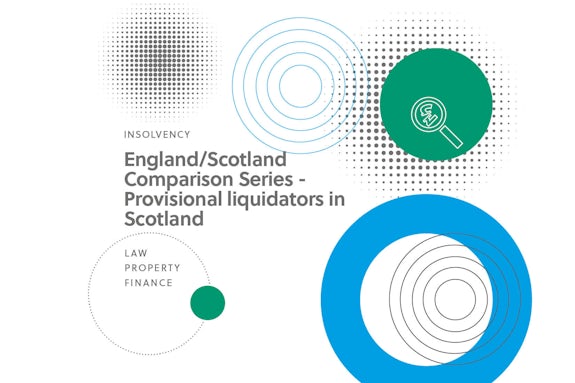Provisional liquidation – a rare beast in England and Wales but much more common in Scotland. In this article, we take a look at the availability of a provisional appointment north of the border in compulsory liquidations and the advantages it offers.
In England and Wales, the courts are generally only willing to entertain an application for a provisional appointment in exceptional cases where there is a need to protect assets. The court applies a two stage test. First, it must be satisfied that a winding up order is indeed likely to be made. The court will only usually be persuaded of this if there is a very clear case of insolvency. Secondly, the court must be persuaded to exercise its discretion to appoint a provisional liquidator. The courts are reluctant to go down that route unless there is significant risk to the company’s assets, potential loss or destruction of the company’s books or a public interest reason for the appointment. It is not a common occurrence for the court to make a provisional appointment.
In Scotland, however, the appointment of provisional liquidators is much more common, indeed, even routine in certain circumstances. The Scottish courts are mindful that a provisional appointment is a significant step and is likely to be extremely damaging to the company’s business, particularly if for any reason a winding up order is not ultimately granted. Nevertheless, they are much more willing to make provisional appointments, especially in cases where the winding up petition is brought by the company or its directors. In director-led petitions, the court will often be persuaded that a provisional appointment is justified on the basis that the provisional appointment will benefit employees and enable stock and assets to be secured. It is also to the benefit of directors who may be concerned about continuing to trade the company which is insolvent pending the winding up order being made. The Scottish courts will often restrict the provisional liquidator’s powers to carrying on the business of the company but can be persuaded to extend those powers to include powers to sell assets if there is a clear need to do so, often with time limits on those powers being applied by the individual judge.
The easier availability of provisional appointments, especially in director-led winding ups is a useful addition to the insolvency tool kit north of the border. It is a step that we always consider recommending for directors where a liquidation is inevitable and they have concerns about the period from starting of the liquidation process to it eventually being granted.
If you would like further information regarding the topics discussed in this blog, please contact:
Eilidh MacEwan by email: emacewan@gilsongray.co.uk or by phone: 0131 285 1809 / 07376 192 463.
Steven Jansch by email: sjansch@gilsongray.co.uk or by phone: 0131 516 5361 / 07841 920 100.
You can visit our dedicated Insolvency page here.







